Bangladesh Health Leaders teaching invaluable lessons
In 2021, 550 new Health Leaders were trained in Bangladesh through our health programs, serving more than 120,000 people.
In September, the first local impact evaluation was produced, measuring the change in knowledge, attitudes and practices based on the 25 modules of health education delivered by the Bangladeshi Health Leaders. The results were impressive, with the greatest improvement in topics involving women’s health - Menstrual and Reproductive Health (50 per cent improvement) and Maternal Health (38 per cent improvement).
Here are some of the women and their daughters who have benefited from the program:
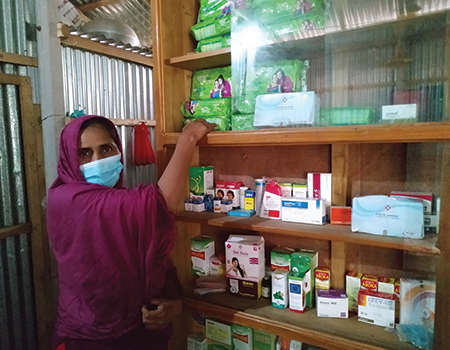
Manikjan
Manikjan, a married mother of two, has a strong interest in health issues in her community. In her small village there was no pharmacy and the community had no access to emergency medicine, birth control, feminine hygiene products and vitamin supplements.
It is a very long walk to the town with the nearest pharmacy, which many people can’t do. Manikjan decided to open her own pharmacy to provide the service to her community. She also trained as a Health Leader and offers basic training in maternal health, adolescent health, family planning, infectious diseases and environmental health issues.
The pharmacy has been wonderful for Manikjan, as she can now support her family financially, as well as serving the community with their medical needs.
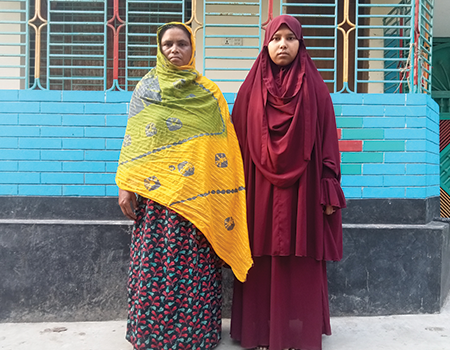
Rojina
Rojina and her husband have three daughters. Her oldest daughter started puberty early and Rojina didn’t have the right information or advice to give her. Her daughter felt isolated at school and felt she couldn’t participate in games or social events while menstruating.
When Rojina met her local Health Leader Taslima, she received basic menstrual and reproductive health education, and was able to pass on the knowledge to her daughter. She now knows the basics of menstrual health and how to manage her monthly cycle.
“Now my daughter goes to school, plays with friends, eats nutritious food, and participates in family activities. She is now aware of menstrual and reproductive health and is very happy,” said Rojina.
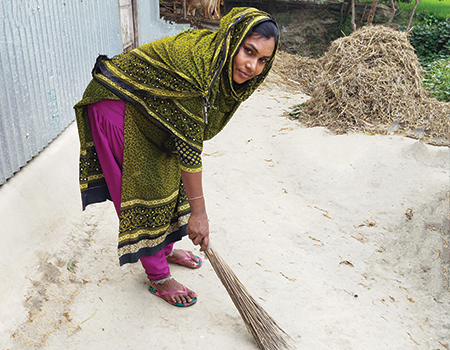
Laily
Laily is married with two sons and lives in very basic conditions. Family and social prejudices combined with shame meant that Laily did not have good knowledge of basic menstrual health. She often suffered from urinary tract infections as she was not using the correct feminine hygiene products. She used antibiotics to treat the infection and often had to go to hospital, which was expensive and beyond their means.
Laily met Co-Health Educator Ashamani, who visited her home each week to teach her about menstrual health. She now understands how to manage her periods and doesn’t suffer infections anymore, and has less financial burdens. She is living a much happier life now.
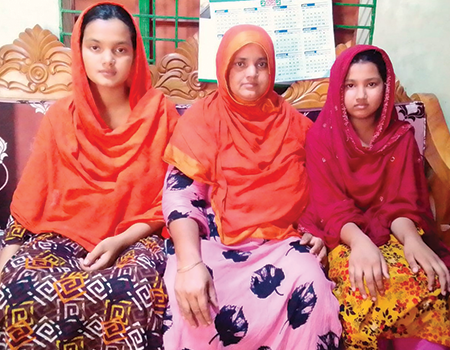
Jesmin
Jesmin is married with three daughters and one son. Her second eldest daughter was pregnant and living with Jesmin. A Health Educator Sabina visited their house each week as part of the Basic Health Education Program, teaching them about maternal health. Her daughter gave birth safely by caesarean at a health centre, and Jesmin has been helping her take care of the baby, and has the knowledge now to help with good post-natal care and nutrition.
She has also received helpful education on puberty and menstrual health for her younger daughter.
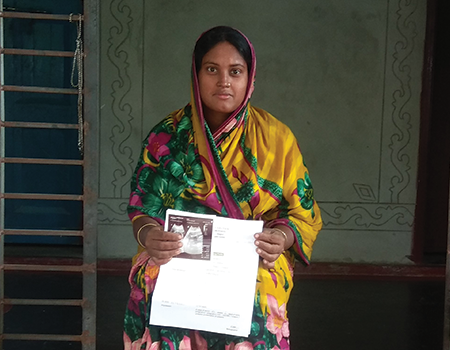
Kulsum
Kulsum is a mother of an eight-year-old boy and is pregnant with her second child. With her first pregnancy, Kulsum was not aware of services available to her, she didn’t know about how to stay healthy during pregnancy, birth plans, post partum or newborn care.
Since being in contact with a Health Educator, Kulsum now has a birth plan, has her hospital visit arranged in readiness for the delivery, and understands the need to rest and take care of her health during her pregnancy. She feels much more confident this time around and has also been educated about birth control following the birth of her baby.
“I came to know about all these things through the training of the Basic Health Education Program,” said Kulsum.
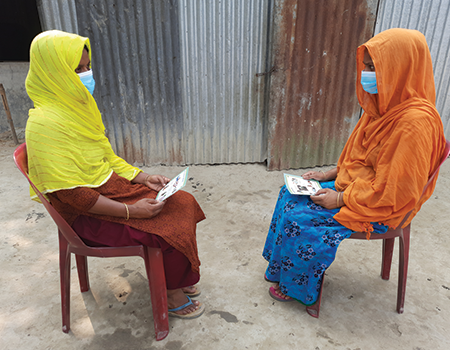
Mithu
Mithu is a housewife with limited education opportunities after growing up in poverty. When she was pregnant she didn’t know that she should have regular health check-ups and her family thought it was expensive and a waste of money.
Local Health Leader Sajeda visited Mithu in her home and educated her on basic maternal health and hygiene and the importance of clean water. Sajeda advised Mithu to visit the doctor for regular check-ups. The information she gained from her visits from the health leader were invaluable and was something Mithu never would have had access to if it weren’t for the Basic Health Education Program.
Our Health Leader program in Bangladesh is supported by the Australian Government through the Australian NGO Cooperation Program (ANCP).